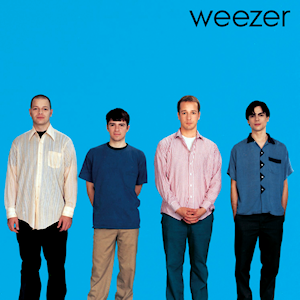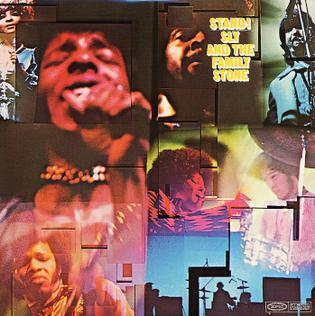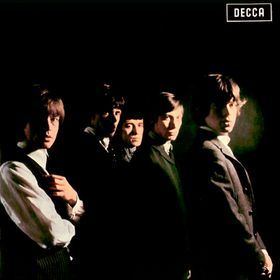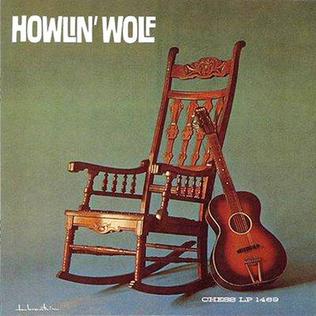Related Research Articles

Sly and the Family Stone was an American funk rock band originated from San Francisco, California. Active from 1966 to 1983, they were pivotal in the development of funk, soul, rock, and psychedelic music. Their core line-up was led by singer-songwriter, record producer, and multi-instrumentalist Sly Stone, and included Stone's brother and singer/guitarist Freddie Stone, sister and singer/keyboardist Rose Stone, trumpeter Cynthia Robinson, drummer Greg Errico, saxophonist Jerry Martini, and bassist Larry Graham. The band was the first major American rock group to have a racially integrated, male and female lineup.

"That'll Be the Day" is a song written by Buddy Holly and Jerry Allison. It was first recorded by Buddy Holly and the Three Tunes in 1956 and was re-recorded in 1957 by Holly and his new band, the Crickets. The 1957 recording achieved widespread success. Holly's producer, Norman Petty, was credited as a co-writer, although he did not contribute to the composition.

George "Buddy" Guy is an American blues guitarist and singer. He is an exponent of Chicago blues who has influenced generations of guitarists including Eric Clapton, Jimi Hendrix, Jimmy Page, Keith Richards, Stevie Ray Vaughan, Jeff Beck, Gary Clark Jr. and John Mayer. In the 1960s, Guy played with Muddy Waters as a session guitarist at Chess Records and began a musical partnership with blues harp virtuoso Junior Wells.

Weezer is the debut studio album by American rock band Weezer, released on May 10, 1994, by DGC Records. It was produced by Ric Ocasek.

Stand! is the fourth album by soul/funk band Sly and the Family Stone, released on May 3, 1969. Written and produced by lead singer and multi-instrumentalist Sly Stone, Stand! is considered an artistic high-point of the band's career. Released by Epic Records, just before the group's celebrated performance at the Woodstock festival, it became the band's most commercially successful album to date. It includes several well-known songs, among them hit singles, such as "Sing a Simple Song", "I Want to Take You Higher", "Stand!", and "Everyday People". The album was reissued in 1990 on compact disc and vinyl, and again in 2007 as a remastered numbered edition digipack CD with bonus tracks and, in the UK, as only a CD with bonus tracks.

"Not Fade Away" is a song credited to Buddy Holly and Norman Petty and first recorded by Holly and his band, the Crickets.

"Buddy Holly" is a song by American rock band Weezer. The song was written by Rivers Cuomo and released as the second single from the band's debut album, Weezer on September 7, 1994, which would have been Buddy Holly's 58th birthday. The lyrics reference the song's 1950s namesake and actress Mary Tyler Moore. It reached number two and number 34 on the US Modern Rock Tracks chart and the US Mainstream Rock Tracks chart, respectively. The song also reached number six in Canada, number 12 in the United Kingdom, number 13 in Iceland and number 14 in Sweden.

"Thank You (Falettinme Be Mice Elf Agin)" is a 1969 song recorded by Sly and the Family Stone. The song, released as a double A-side single with "Everybody Is a Star", reached number one on the soul single charts for five weeks, and reached number one on the Billboard Hot 100 in February 1970. Billboard ranked the record as the No. 19 song of 1970.

The Rolling Stones is the debut studio album by the English rock band of the same name, released by Decca Records in the UK on 16 April 1964. The American edition of the LP, with a slightly different track list, came out on London Records on 30 May 1964, subtitled England's Newest Hit Makers, which later became its official title.

"Family Affair" is a 1971 number-one hit single recorded by Sly and the Family Stone for the Epic Records label. Their first new material since the double A-sided single "Thank You "/ "Everybody Is a Star" nearly two years prior, "Family Affair" became the third and final number-one pop single for the band. In 2021, Rolling Stone magazine ranked the song 57th on their list of the 500 Greatest Songs of All Time. The cover version by John Legend, Joss Stone, and Van Hunt, won the Grammy Award for Best R&B Performance by a Duo or Group with Vocals at 49th Annual Grammy Awards.
"Mustang Sally" is a rhythm and blues (R&B) song written and first recorded by Mack Rice in 1965. It was released on the Blue Rock label (4014) in May 1965 with "Sir Mack Rice" as the artist. The song uses an AAB layout with a 24-bar structure.

Howlin' Wolf is the second album from the Chicago blues singer/guitarist/harmonicist, Howlin' Wolf. It is a collection of twelve singles previously released by the Chess label from 1960 through 1962. Because of the illustration on its sleeve, the album is often called The Rockin' Chair Album, a nickname even added to the cover on some reissue pressings of the LP.

"Little Red Rooster" is a blues standard credited to arranger and songwriter Willie Dixon. The song was first recorded in 1961 by American blues musician Howlin' Wolf in the Chicago blues style. His vocal and slide guitar playing are key elements of the song. It is rooted in the Delta blues tradition and the theme is derived from folklore. Musical antecedents to "Little Red Rooster" appear in earlier songs by blues artists Charlie Patton and Memphis Minnie.

"Runaround Sue" is a rock and roll song, originally a US No. 1 Hot 100 hit for the singer Dion during 1961, after he split with the Belmonts. It was written by Dion with Ernie Maresca, and tells the story of a disloyal lover. The song ranked No. 351 on the Rolling Stone list of "The 500 Greatest Songs of All Time".

"Tell Me (You're Coming Back)" is a song by the English rock band the Rolling Stones, featured on their 1964 self-titled album (subtitled and often called England's Newest Hit Makers in the US). It became the first A-side single written by Jagger/Richards to be released, although not in the United Kingdom. The single reached number 24 in the United States (becoming their first top 40 hit there) and the top 40 in several other countries.

"I'm Gonna Love You Too" is a song written by Joe B. Mauldin, Niki Sullivan and Norman Petty, originally recorded by Buddy Holly in 1957 and released as a single in 1958. It was covered 20 years later by American new wave band Blondie and released as the lead single in the U.S. from their multi-platinum 1978 album Parallel Lines.

"Everyday" is a song written by Buddy Holly and Norman Petty, recorded by Buddy Holly and the Crickets on May 29, 1957, and released on September 20, 1957, as the B-side of "Peggy Sue", which went to three on the Billboard Top 100 chart in 1957. The song is ranked number 238 on Rolling Stone magazine's list of the "500 Greatest Songs of All Time".
Gerald Goldstein is an American producer, singer-songwriter, talent manager, music executive, musician and entrepreneur. He was one of the members of The Strangeloves, the co-writer of "My Boyfriend's Back" and "Come on Down to My Boat", the producer and songwriter of War, and the former manager of Sly Stone. Goldstein produced a single with teenage singer, Nancy Baron in 1963 for the Diamond Record label. Goldstein was part of a three-person production team which wrote and produced numerous records which are referred to as "FGG"-Feldman, Goldstein and Gottehrer. The numerous artists and their work in collaboration with FGG are listed in a Discography included in the references below.

There's a Riot Goin' On is the fifth studio album by American funk and soul band Sly and the Family Stone. It was recorded from 1970 to 1971 at Record Plant Studios in Sausalito, California and released later that year on November 1 by Epic Records. The recording was dominated by band frontman/songwriter Sly Stone during a period of escalated drug use and intra-group tension.
Theodore Roosevelt "Ted" Jarrett Jr. was an American singer-songwriter and producer of country, gospel, and soul music.
References
- ↑ Gene Allison "You Can Make It If You Try" at AllMusic . Retrieved March 26, 2016.
- ↑ "You Can Make It If You Try: Gene Allison". genius.com . Retrieved July 12, 2017.
- ↑ "You Can Make It If You Try". song-database.com. Retrieved July 12, 2017.[ dead link ]
- ↑ Unterberger, Richie. The Rolling Stones - "You Can Make It If You Try" (1964, composed by Ted Jarrett) song review at AllMusic . Retrieved March 26, 2016.
- ↑ Buddy Guy - "You Can Make It If You Try" (1980) at AllMusic . Retrieved March 26, 2016.